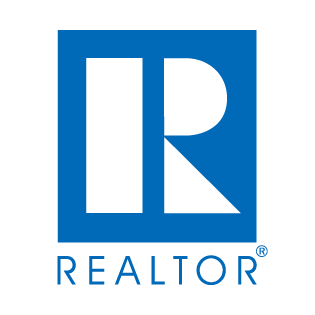- The Financial Freedom Blueprint
- Posts
- 7 Real Estate Terms You Need to Know as a Beginner
7 Real Estate Terms You Need to Know as a Beginner
Hey everybody!
Welcome to another edition of “The Financial Freedom Blueprint” where we discuss the topics of real estate and financial freedom.
My goal is to help as many people as I can get started investing in real estate and eventually reach a goal of financial freedom where they can create a life they don’t need a vacation from.
Today, I will be going over some real estate terms and acronyms that you may hear in a typical conversation between investors.
Have you ever been to a real estate meetup and overheard people using industry jargon or vocabulary?
“With an ARV of $150,000 and an 80% LTV, we can use an adjustable rate mortgage and won’t have to pay PMI.”
This is a slightly exaggerated example of a sentence you may hear investors say.
If you don’t understand what that means, don’t worry about it.
Learn the lingo and then learn the game.
Here are 7 real estate terms you need to know as a beginner.
1) LTV-Loan to Value
This number is simply the amount borrowed divided by the appraised value of the property.
Most investment properties require a minimum of 80% LTV, which means there is 20% equity in the deal.
Example: 80% LTV on a property that is appraised at $200,000 means $160,000 is financed and $40,000 is equity.
2) ARV-After Repair Value
This is simply a term that refers to what the house will be worth after it has been rehabbed.
The number is usually based on comparable properties in the neighborhood when it comes to residential real estate and is one of the first numbers you need to find out when analyzing a deal.
Example: You could buy a house for $50,000 but it could be worth $150,000 after you renovate the property. ($150,000 would be the ARV)
3) MLS-Multiple Listing Service
“MLSs are private databases that are created, maintained and paid for by real estate professionals to help their clients buy and sell property. In most cases, access to information from MLS listings is provided to the public free-of-charge by participating brokers.”
4) ARM-Adjustable Rate Mortgage
Typically, an adjustable rate mortgage is a loan that adjusts periodically based on the current interest rates.
This means your monthly payment could go up or down depending on what interest rates do.
In many cases, it has a fixed rate for a specific time period and then it adjusts based on current interest rates at the time.
For example, it could be fixed for 5 years, but then adjust each year after that. This would be called a 5/1 ARM.
5) PMI-Private Mortgage Insurance
Anytime you put less than 20% down on a property as an investor, you are required to pay PMI.
This will typically be for a primary residence that you will be living in.
The PMI payment helps insure the lender since the deal is seen as riskier with less equity in the deal.
6) FHA-Federal Housing Administration
The Federal Housing Administration provides mortgage insurance on loans made by FHA-approved lenders.
An FHA loan was meant to help low to medium income earners find financing for their home purchases.
It is also a loan product for first time home buyers.
Most people can get approved with lower credit scores and a lower down payment.
These loans are insured by the government and are seen as riskier due to the lower down payment.
7) PITI-Principal, Interest, Taxes and Insurance
Principal, interest, taxes and insurance are the regular monthly costs the owner will incur.
Typically, principal and interest are paid to your lender each month in the same payment.
When it comes to taxes and insurance, those can also be paid with the principal and interest depending on the lender. If the lender accepts those payments, they hold it in an escrow account and pays those bills for you.
If it isn’t paid to the lender, then it is your job to stay on top of these payments yourself.
There you have it!
You now understand 7 terms that are commonly used in the residential real estate industry.
Again, it is not super difficult to understand, but it is lingo that can you help you have conversations involving real estate.
If you have any other questions, feel free to respond to this email!
Whenever you are ready, there is a way I can help you get started:
Active Investors
If you want to learn how to purchase your first investment property within 6 months, but don’t know what steps to take, please schedule a call with me using the link below to see if my coaching program can help.
I’ll help you minimize beginner mistakes and shorten the learning curve from years to months.
For Everybody
If you haven’t already, be sure to follow me on Instagram: @realestatewithcaleb
Disclaimer: My newsletter should be viewed as educational content and should not be construed as actionable advice without consulting the proper professionals.
